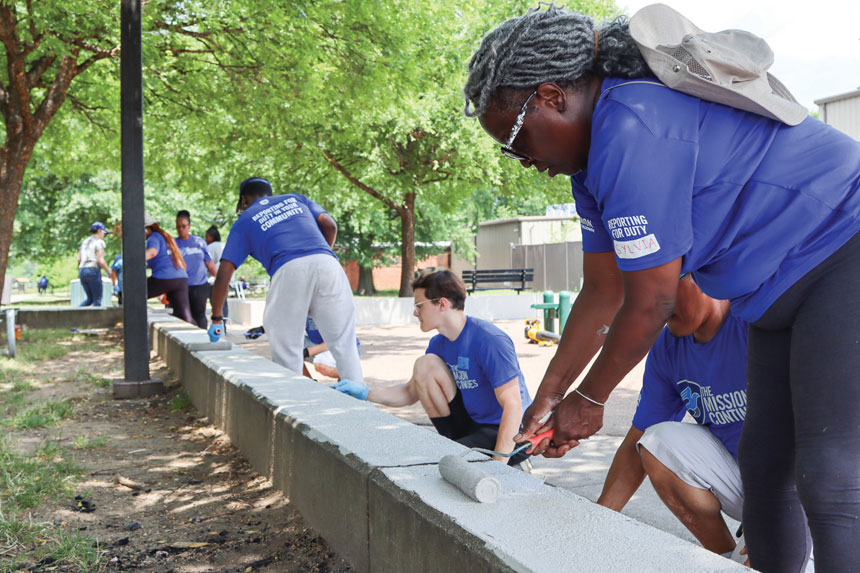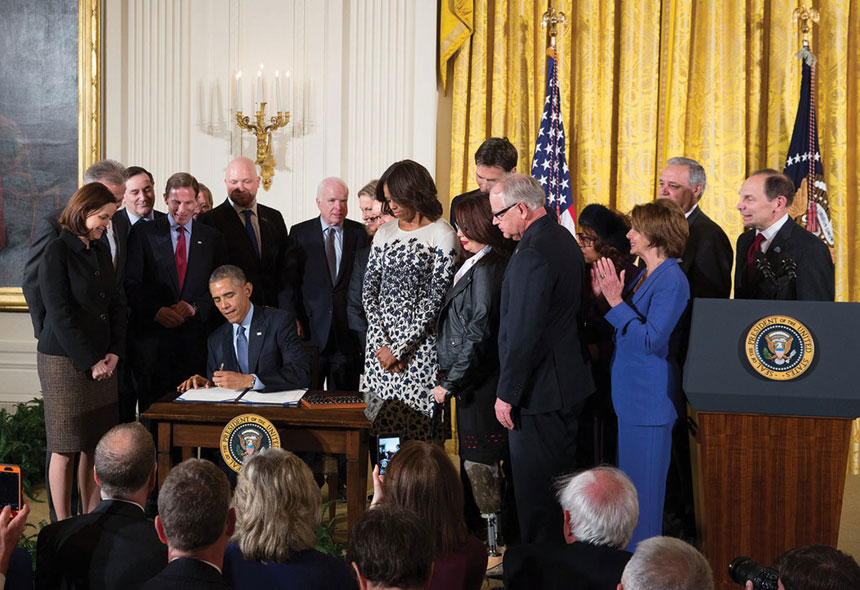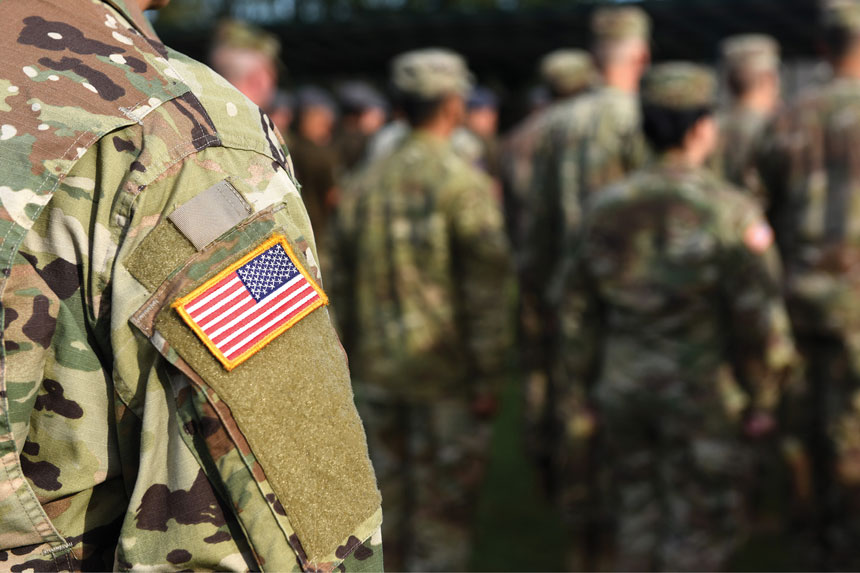When my cellphone buzzed in a Brooklyn bar and the voice at the other end told me a Marine I’d served with had been shot in Afghanistan, I looked around, searching for someone to talk to. The band setting up, the tattooed bartenders, any of them could have plausibly been a sympathetic ear. I’ve generally found civilians quite interested once you take the effort. And yet … I couldn’t. It would, I suspected, be treated as a personal tragedy, as though I were delivering the news that a family member had been diagnosed with cancer. Not as something that implicated them.
Today, we’re mobilized for war in a manner perfectly designed to ensure we don’t think about it too much. Since we have an all-volunteer force, participation in war is a matter of choice, not a requirement of citizenship, and those in the military represent only a tiny fraction of the country — what historian Andrew Bacevich calls “the 1 percent army.” So the average civilian’s chance of knowing any active member of the service is correspondingly small.
Moreover, we’re expanding those aspects of warfighting that fly under the radar. Our drone program continues to grow, as does the Special Operations Forces community, which has expanded from 45,600 personnel in 2001 to 70,000 today, with further increases planned. The average American is even less likely to know a drone pilot or a member of a Special Ops unit — or to know much about what they actually do, either, since you can’t embed a reporter with a drone or with SEAL Team Six. Our Special Operations Command has become, in the words of former lieutenant colonel John Nagl, “an almost industrial-scale counterterrorism killing machine.”
Though it’s true that citizens do vote for the leaders who run this machine, we’ve absolved ourselves from demanding a serious debate about it in Congress. We’re still operating under a decade-old Authorization for Use of Military Force issued in the wake of 9/11, before some of the groups we’re currently fighting even existed. We wage war “with or without congressional action,” in the words of President Obama at his final State of the Union Address, which means that the American public remains insulated from considering the consequences. Even if they voted for the president ordering these strikes, there’s seemingly little reason for citizens to feel personally culpable when they go wrong.
It’s that sense of a personal stake in war that the veteran experiences viscerally, and which is so hard for the civilian to feel. There’s a remarkable piece in Harper’s Magazine titled “It’s Not That I’m Lazy,” published in 1946 and signed by an anonymous veteran, that argues, “There’s a kind of emptiness inside me that tells me that I’ve still got something coming. It’s not a pension that I’m looking for. What I paid out wasn’t money; it was part of myself. I want to be paid back in kind, in something human.”

That sounds right to me: “something human,” though I’m not sure what form it would take. When I first came back from Iraq, I thought it meant a public reckoning with the war, with its costs not just for Americans but for Iraqis as well. As time goes by, I’ve given up on hoping that will happen anytime soon.
Despite this, I don’t see nihilism from my fellow veterans. I see the opposite. I’ve met veterans who, horrified by the human cost of our wars overseas, have joined groups like the International Refugee Assistance Project or the International Rescue Committee. I’ve met veterans who’ve gone into public service — one of whom also remained in a reserve unit because, as he put it to me, “I want to know the decisions I make might affect me personally.” I’ve met veterans who’ve lobbied Congress, worked to fight military sexual assault, established literary nonprofits, or worked to make public service — military or otherwise — an expectation within American society. A recent analysis of census data shows that, compared with their peers, veterans volunteer more, give more to charity, vote more often, and are more likely to attend community meetings and join civic groups. This is the kind of civic engagement necessary for the functioning of a democracy.
In 2007, Rhodes Scholar and Navy SEAL Eric Greitens made a visit to the National Naval Medical Center in Bethesda, Maryland. The men and women he found there, including amputees and serious burn victims, generally were eager to return to their units, though that would in many cases be impossible. These vets had been repeatedly thanked for their service. They’d been assured they were heroes and that they had the support of a grateful nation. But, as recounted in Joe Klein’s book Charlie Mike, Greitens found what energized them was something different. Four words: “We still need you.”
Greitens went on to found The Mission Continues, an organization that awards community-service fellowships that “redeploy” post‑9/11 veterans back to their communities to work on projects from education to housing and beyond. One study found that, though these veterans had high rates of traumatic brain injury (52 percent), PTSD (64 percent), and depression (28 percent), the opportunity to feel that they had made a contribution led to remarkably positive post-fellowship experiences. Eighty-six percent reported that the fellowship was a positive, life-changing experience. Seventy-one percent went on to pursue further education, 86 percent transferred their military skills to civilian employment, and large majorities reported that the fellowships helped them become community leaders able to teach others the value of service.
“While most watch the suffering of the world on their TV, we ACT, rapidly and with great purpose,” writes Marine sniper Clay Hunt, a veteran of Iraq and Afghanistan who provided relief efforts with the veteran-led disaster response organization Team Rubicon in the wake of earthquakes in Chile and Haiti, raised money for wounded veterans, and helped lobby Congress for veterans’ benefits. “Not counting the cost and without hope for reward. We simply refuse to watch our world suffer, when we have the skills and the means to alleviate some of that suffering, for as many people as we can reach. … Inaction is not an option.”
Clay Hunt took his own life in March 2011. His story may be a heroic tale of a Marine who served with distinction and came home determined to continue serving, but it is also the much darker story of a Marine who was never able to get the help he himself needed. Once out of the Corps, Hunt struggled with the Veterans Administration over his disability rating and his treatment. He appealed the low level of his benefits only to face one bureaucratic hurdle after another, including the VA losing his files, the process dragging out for 18 months. As for his medical care, he got almost no counseling for his post-traumatic stress, but was instead prescribed a variety of drugs, none of which seemed to help. He felt he’d been used as a “guinea pig” for one failed treatment after another. After moving to Houston, he waited months for his first appointment with a psychiatrist, and then found the appointment so stressful he resolved never to return. Two weeks later he killed himself.

True integration back into society can be overwhelmingly difficult for veterans struggling with unbearable physical or mental injuries. Hence the bare minimum of the payment veterans are due: a reliable Veterans Administration, improved mental healthcare, and adequate help transitioning to the civilian sector. The Clay Hunt Suicide Prevention for American Veterans (SAV) Act that President Obama signed into law in 2015 is intended to address some of these needs.
But this is just a starting place. It does not fully repay the debt to a Marine suffering post-traumatic stress if we provide him access to competent mental healthcare, just as we don’t fully repay the debt to a soldier who lost a limb by handing her a well-made prosthetic. And in the wake of a war that has left whole societies shattered, hundreds of thousands of lives lost and more displaced, the debt cannot be solely to an individual, or even to a class of individuals, like veterans. A therapeutic approach, however necessary, can only heal wounds. Our problems run deeper than that.
At the time I took the oath as a Marine to support and defend the Constitution, it felt like a special and precious burden I was taking on — sworn to defend not simply the physical security of my homeland but to defend something broader, our founding document, and thus the set of ideals embedded within it. Years later, looking through the section in the U.S. Citizenship and Immigration Services’ “Citizen’s Almanac” on citizens’ responsibilities, I was embarrassed to realize my obligations as a Marine were not so unique. The very first responsibility listed is to “support and defend the Constitution against all enemies, foreign and domestic.” So I had already owed that to my country, by virtue of my birth and the privilege of being American.
The divide between the civilian and the service member, then, need not feel so wide. Perhaps the way forward is merely through living up to those ideals through action, and a greater commitment by the citizenry to the institutions of American civic life that so many veterans are working to rebuild. Teddy Roosevelt once claimed a healthy society would regard the man “who shirks his duty to the State in time of peace as being only one degree worse than the man who thus shirks it in time of war. A great many of our men … rather plume themselves upon being good citizens if they even vote; yet voting is the very least of their duties.” That seems right to me. The exact nature of those additional duties will depend on the individual’s principles.
What is undeniable, though, is that there is always a way to serve, to help bend the power and potential of the United States toward the good. No civilian can assume the moral burdens felt at a gut level by participants in war, but all can show an equal commitment to their country, an equal assumption of the obligations inherent in citizenship, and an equal bias for action. Ideals are one thing; the messy business of putting them into practice is another. That means giving up on any claim to moral purity. That means getting your hands dirty.
Phil Klay is a veteran of the U.S. Marine Corps and the author of Redeployment, which won the 2014 National Book Award for Fiction, and Missionaries, which was named one of the Ten Best Books of 2020 by The Wall Street Journal. His writing has appeared in The New York Times, The Washington Post, The Wall Street Journal, The Atlantic, and elsewhere.
From Uncertain Ground: Citizenship in an Age of Endless, Invisible War by Phil Klay, Published by Penguin Press, an imprint of The Penguin Publishing Group, A Division of Penguin Random House, LLC. Copyright © 2022 by Phil Klay
This article is featured in the September/October 2023 issue of The Saturday Evening Post. Subscribe to the magazine for more art, inspiring stories, fiction, humor, and features from our archives.
Become a Saturday Evening Post member and enjoy unlimited access. Subscribe now



